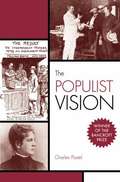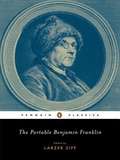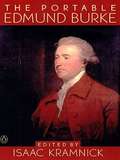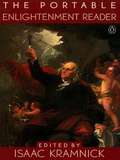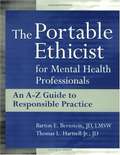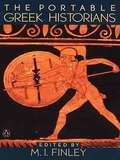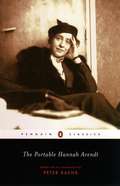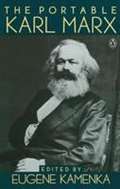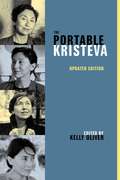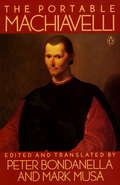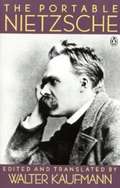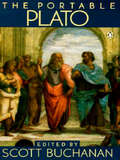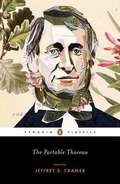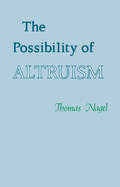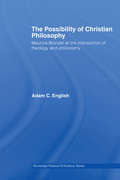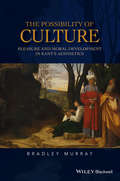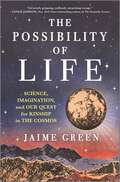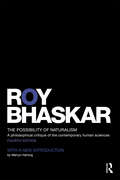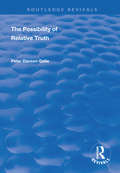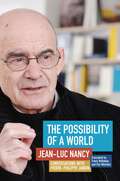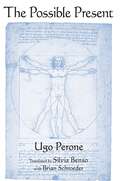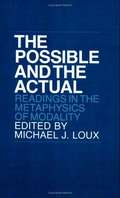- Table View
- List View
The Populist Vision
by Charles PostelThe Populist movement has been both dismissed as an irrational response of backward-looking farmers to modernity and romanticized as a resistance movement of tradition-based communities to modern, commercial society. Now, in a wide-ranging and provocative reassessment, based on a deep reading of archival sources, The Populist Vision argues the opposite - that the Populists understood themselves as, and in fact were, modern people, pursuing an alternative vision for modern America. Taking into account the leaders and the led, The Populist Vision uses a wide lens - focusing on the farmers, both black and white, men and women - but also looking at wage workers and bohemian urbanites. Ranging from Texas to the Dakotas, from Georgia to California, Charles Postel shows how farmer Populists strove to use the new innovations for their own ends. They sought scientific and technical knowledge, formed highly centralized organizations, launched large-scale cooperative businesses, and pressed for reforms on the model of the nation's most elaborate bureaucracy - the Postal Service. Hundreds of thousands of women joined the movement, too, seeking education, employment in schools and offices, and a more modern life. Miners, railroad workers, and other labor Populists joined with farmers to give impetus to the regulatory state. Activists from Chicago, San Francisco, and other new cities provided Populism with a dynamic urban dimension. The winner of a prestigious Bancroft Prize and the Organization of American Historian's Frederick Jackson Turner Award, this highly original account of the Populist movement is essential reading for anyone interested in the politics, society, and culture of modern America.
The Portable Benjamin Franklin
by Benjamin Franklin Larzer ZiffIt takes a very inclusive anthology to encompass the protean personality and range of interests of Benjamin Franklin, but The Portable Benjamin Franklin succeeds as no collection has. In addition to the complete Autobiography, the volume contains about 100 of Franklin’s major writings—essays, journalism, letters, political tracts, scientific observations, proposals for the improvement of civic and personal life, literary bagatelles, and private musings. The selections are reprinted in their entirety and organized chronologically within six sections that represent the full range of Franklin’s temperament. The result is a zestful read for Franklin scholars and anyone wanting to know and enjoy this American icon. First time in Penguin Classics Published to coincide with the 300th anniversary of Franklin's birthday The only anthology of its kind to present essays and letters of Franklin's in their entirety .
The Portable Edmund Burke
by Edmund Burke Isaac KramnickThe intellectual wellspring of modern political conservatism, Edmund Burke is also considered a significant figure in aesthetic theory and cultural studies. As a member of the House of Commons during the late eighteenth century, Burke shook Parliament with his powerful defense of the American Revolution and the rights of persecuted Catholics in England and Ireland; his indictment of the English rape of the Indian subcontinent; and, most famously, his denouncement of English Jacobin sympathizers during the French Revolution. The Portable Edmund Burke is the fullest one- volume survey of Burke's thought, with sections devoted to his writings on history and culture, politics and society, the American Revolution, Ireland, colonialism and India, and the French Revolution. This volume also includes excerpts from his letters and an informative Introduction surveying Burke's life, ideas, and his reception and influence in the nineteenth and twentieth centuries. .
The Portable Enlightenment Reader
by Various Isaac KramnickThe Age of Enlightenment of the eighteenth century, also called the Age of Reason, was so named for an exultant intellectual movement that shook the foundations of Western civilization. In championing radical ideas such as individual liberty and an empirical appraisal of the universe through rational inquiry and natural experience, Enlightenment philosophers in Europe and America planted the seeds for modern liberalism, cultural humanism, science and technology, and laissez-faire capitalism. This volume brings together the era's classic works, with more than a hundred selections from a broad range of sources--including works by Kant, Diderot, Voltaire, Newton, Rousseau, Locke, Franklin, Jefferson, Madison, and Paine--that demonstrate the pervasive impact of Enlightenment views on philosophy and epistemology as well as on political, social, and economic institutions. Included are seminal discourses on science and religion, on the social contract, on the equality (and inequality) of the sexes and the races, and on economics and markets, as well as homages to nature and sexual pleasure, and poetry and opera librettos that embody the movement's social ideals.
The Portable Enlightenment Reader
by Various Isaac KramnickThe Age of Enlightenment of the 18th century, also called the Age of Reason, was so named for an intellectual movement that shook the foundations of Western civilization. In championing radical ideas such as individual liberty and an empirical appraisal of the universe through rational inquiry and natural experience, Enlightenment philosophers in Europe and America planted the seeds for modern liberalism, cultural humanism, science and technology, and laissez-faire Capitalism This volume brings together works from this era, with more than 100 selections from a range of sources. It includes examples by Kant, Diderot, Voltaire, Newton, Rousseau, Locke, Franklin, Jefferson, Madison, and Paine that demonstrate the pervasive impact of Enlightenment views on philosophy and epistemology as well as on political, social, and economic institutions.
The Portable Ethicist for Mental Health Professionals: An A-Z Guide to Responsible Practice
by Barton E. Bernstein Thomas L. HartsellEverything you need to know to protect your practice against ethical violations and complaints. The Portable Ethicist for Mental Health Professionals is a valuable, easy-to-use resource for all mental health service providers. Written by two attorneys specializing in legal and ethical issues in mental health, this indispensable guide arms you with the expert knowledge you need to avoid an ethical violation-or to handle the situation if a complaint is filed. Barton Bernstein and Thomas Hartsell Jr. tackle dozens of ethical questions using the codes of several mental health professional associations and provide practical guidelines for avoiding ethically questionable behavior. Organized alphabetically for easy reference, this complete A-to-Z guide: Provides clear, concise answers to ethical questions-from the simple to the complex Covers key categories, including confidentiality, dual relationships, sexual misconduct, false and misleading statements, malpractice, drug and alcohol use, documentation, record keeping, closing a practice (retirement or death), responding to a subpoena, and more Features step-by-step guidance, helpful case studies, and "ethical flash points" that alert you to warning signs and help you steer clear of ethically questionable situations Covers the role of state licensing boards and national mental health associations in responding to complaints of ethical violations Even an unintentional ethical violation can lead to personal and professional disaster. The Portable Ethicist for Mental Health Professionals helps you protect yourself, your future, and your practice-and lets you focus on the best interests of your clients.
The Portable Greek Historians
by M. I. FinleyEssential passages from the works of four "fathers of history"--Herodotus's History, Thucydides' History of the Peloponnesian War, Xenophon's Anabasis, and Polybius's Histories.
The Portable Hannah Arendt
by Hannah ArendtThis biography includes generous selections from The Origins of Totalitarianism, The Human Condition, and her controversial Eichmann in Jerusalem. It also includes selection of Arendt's letters to other formative thinkers of the century.
The Portable Karl Marx
by Karl Marx Eugene KamenkaIncludes the complete Communist Manifesto and substantial extracts from On the Jewish Question, the German Ideology, Grundrisse, and Capital, a broad representation of his letters, and lesser-known works, especially his long-unavailable, early works.
The Portable Kristeva (European Perspectives: A Series in Social Thought and Cultural Criticism)
by Julia KristevaAs a linguist, Julia Kristeva has pioneered a revolutionary theory of the sign in its relation to social and political emancipation; as a practicing psychoanalyst, she has produced work on the nature of the human subject and sexuality, and on the "new maladies" of today's neurotic. The Portable Kristeva is the only fully comprehensive compilation of Kristeva's key writings. The second edition includes added material from Kristeva's most important works of the past five years, including The Sense and Non-Sense of Revolt, Intimate Revolt, and Hannah Arendt. Editor Kelly Oliver has also added new material to the introduction, summarizing Kristeva's latest intellectual endeavors and updating the bibliography.
The Portable Machiavelli
by Niccolo Machiavelli Mark Musa Peter BondanellaIn the four and a half centuries since Machiavelli's death, no single and unanimously accepted interpretation of his ideas has succeeded in imposing itself upon the lively debate over the meaning of his works. Yet there has never been any doubt about the fundamental importance of Machiavelli's contribution to Western political theory. The Portable Machiavelli brings together the complete texts of The Prince, Belfagor, and Castruccio Castracani, newly translated by Peter Bondanella and Mark Musa especially for this volume. In addition, the editors include an abridged version of The Discourses; a play, The Mandrake Root, in its entirety; seven private letters; and selections from The Art of War and The History of Florence.
The Portable Nietzsche (Portable Library)
by Friedrich Nietzsche Walter KaufmannThe works of Friedrich Nietzsche have fascinated readers around the world ever since the publication of his first book more than a hundred years ago. As Walter Kaufmann, one of the world's leading authorities on Nietzsche, notes in his introduction, "Few writers in any age were so full of ideas," and few writers have been so consistently misinterpreted. The Portable Nietzsche includes Kaufmann's definitive translations of the complete and unabridged texts of Nietzsche's four major works: Twilight of the Idols, The Antichrist, Nietzsche Contra Wagner and Thus Spoke Zarathustra. In addition, Kaufmann brings together selections from his other books, notes, and letters, to give a full picture of Nietzsche's development, versatility, and inexhaustibility. "In this volume, one may very conveniently have a rich review of one of the most sensitive, passionate, and misunderstood writers in Western, or any, literature." --Newsweek
The Portable Plato
by Plato Scott BuchananWriting in the fourth century B.C., in an Athens that had suffered a humiliating defeat in the Peloponnesian War, Plato formulated questions that have haunted the moral, religious, and political imagination of the West for more than 2,000 years: what is virtue? How should we love? What constitutes a good society?<P><P> Is there a soul that outlasts the body and a truth that transcends appearance? What do we know and how do we know it? Plato's inquiries were all the more resonant because he couched them in the form of dramatic and often highly comic dialogues, whose principal personage was the ironic, teasing, and relentlessly searching philosopher Socrates. In this splendid collection, Scott Buchanan brings together the most important of Plato's dialogues, including Protagoras, The Symposium, with its barbed conjectures about the relation between love and madness, Phaedo and The Republic, his monumental work of political philosophy. <P>Buchanan's learned and engaging introduction allows us to see Plato both as a commentator on his society and as a shaper of the societies that followed, who bequeathed to us a hunger for the ideal as well as a redeeming habit of humane skepticism.
The Portable Thoreau
by Henry David Thoreau Jeffrey S. CramerHenry David Thoreau dedicated his life to preserving his freedom as a man and an artist. Nature was the fountainhead of his inspiration and his refuge from what he considered the follies of society. Heedless of his friends’ advice to live in a more orthodox manner, he determinedly pursued his own inner bent, which was that of a poet-philosopher, in prose and verse. Carl Bode brings together the best of Thoreau’s works in The Portable Thoreau, a comprehensive collection of the writings of a unique and profoundly influential American thinker. The complete texts of Thoreau’s classic works Walden and “Civil Disobedience,” as well as selections from The Maine Woods, Cape Cod, the Journal, and eighteen poems are included. Bode’s introduction rounds out this compact volume, offering a thorough and informative analysis of Thoreau and the forces that shaped his life and writing. “This compact book, containing infinite riches in a little room, is a simple setting for sound sense, nugget-like thought, the refined essences of a point of view” — St. Louis Post-Dispatch .
The Possibility of Altruism
by Thomas NagelJust as there are rational requirements on thought, there are rational requirements on action. This book defends a conception of ethics, and a related conception of human nature, according to which altruism is included among the basic rational requirements on desire and action.
The Possibility of Christian Philosophy: Maurice Blondel at the Intersection of Theology and Philosophy (Routledge Radical Orthodoxy #Vol. 2)
by Adam C. EnglishThis is the first to book to explore Blondel's entire body of work and provides an introduction to his life and writings and their relevance to the debates surrounding the radical orthodoxy identity. Detailing Blondel's impressive research output during the first half of the twentieth century, this volume highlights his relevance to philosophy and religion today and his commitment that philosophy cannot be separated from a theological narrative. This highly original work will be of great interest to scholars of philosophy and religion, particularly the students of the radical orthodoxy movement.
The Possibility of Culture: Pleasure and Moral Development in Kant's Aesthetics (New Directions in Aesthetics)
by Bradley MurrayThe Possibility of Culture: Pleasure and Moral Development in Kant’s Aesthetics presents an in-depth exploration and deconstruction of Kant’s depiction of the ways in which aesthetic pursuits can promote personal moral development. Presents an in-depth exploration of the connection between Kant’s aesthetics and his views on moral development Reveals the links between Kant’s aesthetics and his anthropology and moral psychology Explores Kant’s notion of genius and his views on the connections between the social aspects of taste and moral development Addresses aspects of Kant’s ethical theory that will interest scholars working in ethics and moral psychology
The Possibility of Discussion: Relativism, Truth and Criticism of Religious Beliefs (Ashgate New Critical Thinking In Philosophy Ser.)
by Hugo StrandbergAnswering the question 'How is fruitful discussion possible?', this book addresses the central philosophical issue of how reason shall be understood and how it is limited. This study argues that the understanding of discussion according to which it necessarily starts from putative universal norms and rules for argumentation is problematic, among other reasons since such rules are unfruitful in contexts where there are vast disagreements such as religion. Inspired by Wittgensteinian ideas, Strandberg develops instead a new way of understanding discussion, truth and rationality which escapes these problems, and shows how this solution can be used to answer the accusation against Wittgensteinian philosophy for being conservative and resulting in fideism.
The Possibility of Life: Science, Imagination, and Our Quest for Kinship in the Cosmos
by Jaime Green*An NPR Science Friday Book Club Pick**A "Next Big Idea Book Club" Must Read**A Gizmodo New Release Pick for April**A BookRiot Science Book to Add to Your TBR**A Wired Book to Read for Spring*"A dazzling feat of imagination and synthesis."—Ed Yong, Pulitzer Prize winner and author of An Immense WorldA spellbinding exploration of alien life and the cosmos, examining how the possibility of life on other planets shapes our understanding of humanityOne of the most powerful questions humans ask about the cosmos is: Are we alone? While the science behind this inquiry is fascinating, it doesn&’t exist in a vacuum. It is a reflection of our values, our fears, and most importantly, our enduring sense of hope. In The Possibility of Life, acclaimed science journalist Jaime Green traces the history of our understanding, from the days of Galileo and Copernicus to our contemporary quest for exoplanets. Along the way, she interweaves insights from science fiction writers who construct worlds that in turn inspire scientists. Incorporating expert interviews, cutting-edge astronomy research, philosophical inquiry, and pop culture touchstones ranging from A Wrinkle in Time to Star Trek to Arrival, The Possibility of Life explores our evolving conception of the cosmos to ask an even deeper question: What does it mean to be human?
The Possibility of Naturalism: A philosophical critique of the contemporary human sciences (Critical Realism Ser.)
by Roy BhaskarSince its original publication in 1979, The Possibility of Naturalism has been one of the most influential works in contemporary philosophy of science and social science. It is one of the cornerstones of the critical realist position, which is now widely seen as offering perhaps the only viable alternative to positivism and post positivism. This fourth edition contains a new foreword from Mervyn Hartwig, who is founding editor of the Journal of Critical Realism and editor and principal author of the Dictionary of Critical Realism.
The Possibility of Relative Truth: An Examination of the Possibility of Truth Relativism Within Coherence and Correspondence Host Theories of Truth (Routledge Revivals)
by Peter Davson-GalleFirst published in 1998, this book is an investigation of the possibility of articulating a coherent thesis of truth relativism within first, a host correspondence theory of truth and second, a host coherence theory of truth. The type of relativism addressed in the book is what is sometimes called ’framework relativism’ - that where truth is relativised to a framework of belief or conceptual scheme. A further restraint is that a global relativistic thesis is sought - one which is relativistic about all truths. The book does not set itself the task of defending relativism but just that of seeking a coherent articulation of it.
The Possibility of a World: Conversations with Pierre-Philippe Jandin
by Jean-Luc Nancy Pierre-Philippe JandinIn this series of interviews, Jean-Luc Nancy reviews his life’s work. But like Schlegel’s historian—“a prophet facing backwards”—Nancy takes this opportunity to rummage through the history of art, philosophy, religion, and politics in search of new possibilities that remain to be thought.This journey through Nancy’s thought is interspersed with accounts of places and events and deeply personal details. The result is at once unpretentious and encyclopedic: Concepts are described with remarkable nuance and specificity, but in a language that comes close to that of everyday life.As Nancy surveys his work, he thinks anew about democracy, community, jouissance, love, Christianity, and the arts. In the end, this is a book about the possibility of a world—a world that must be greeted because it is, as Nancy says, already here.
The Possible Present (SUNY series in Contemporary Italian Philosophy)
by Ugo PeroneThe Possible Present unfolds from within a freely reinterpreted hermeneutic perspective and provides an original theoretical proposal on the topic of time. In dialogue especially with the philosophies of Husserl and Heidegger, but resorting also to suggestions coming from a theological background (Barth and Bonhoeffer), the work proposes a personal and original theory of time centered on a conception of the present that does not reduce temporality to a succession of mere instants. When one claims that time is ungraspable, one refers neither to the past (which is rather irretrievable) nor to the future (which is rather uncertain) but to the present. The present in which we are is in fact what fades from our hands without break. The present is a decisive threshold for finite existence. It is the threshold where past and future meet and can give birth to a livable horizon of meaning. Dilating the present and giving it a meaningful chance to be is a task for philosophy. It is the attempt of giving time to time and also giving it shape, place, and space. To succeed at this task while rediscovering the sources of a narrative way of thinking that in truth it has never abandoned, philosophy must go back and turn time into the primary object of discourse, like in stories, which are precisely the attempt at disposing the temporal flow of events according to a meaning. Perone argues that in time, however, what passes is not simply decline, but rather something irreducible, an exteriority that must be said.
The Possible and the Actual: Readings in the Metaphysics of Modality
by Michael J. LouxThis well-chosen collection of fifteen important essays in the fields of philosophical logic and metaphysics addresses questions relating to the nature and status of possible worlds.
The Post colonial and Imperial Experience in American Transcendentalism
by Marek ParyzAnalyses literary representations of the American experience in selected works of Ralph Waldo Emerson, Henry David Thoreau, and Walt Whitman. Reveals the ambivalence that underlay the cultural and political development of the United States as a former colony.
